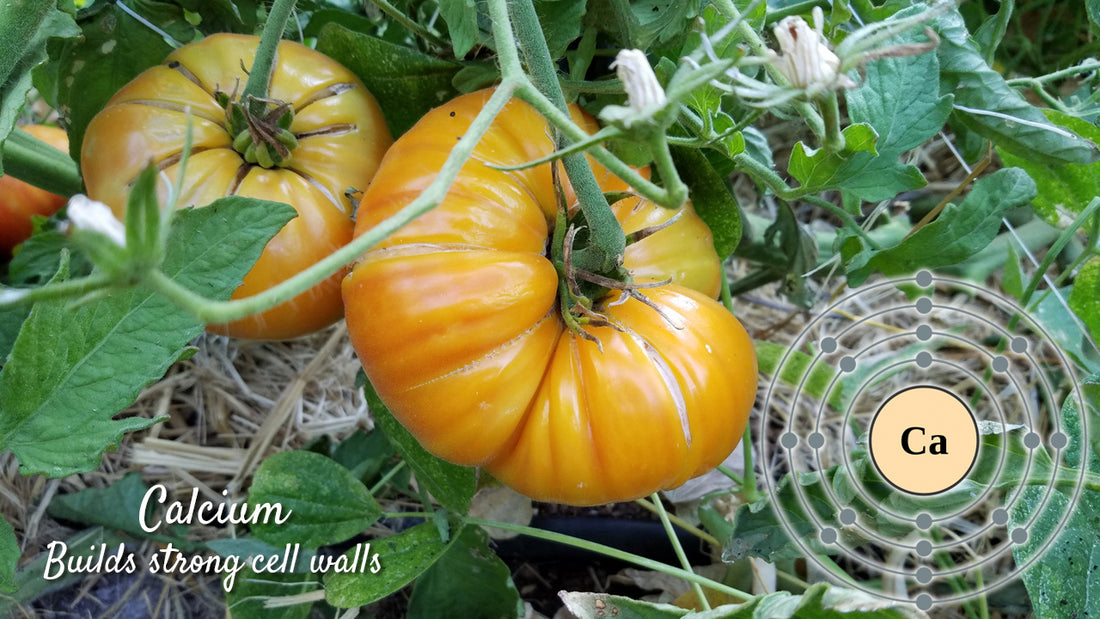Calcium is a necessary element for plant health.
It primarily affects cell wall structure, to promote strong stems and healthy tissue in all parts of the leaf, flower and fruit. It is most common to see a deficiency when your plants are young and growing quickly, or when they are fruiting or flowering, which are the times when the most calcium is needed by the plant.
Deficiency symptoms include shedding blossoms, blossom end rot (seen in tomatoes and peppers), and bitter pit.
How Will Calcium Fertilizers Affect My Soil
Of course, the best way to determine whether you have a calcium deficiency in the soil is to do a professional soil test. This is also the best way to decide which calcium fertilizer is the best choice for your soil’s chemistry. Calcium fertilizers from different sources vary in their effect on pH and in the amount of calcium they contain.
This value is measured by what is called the Calcium Carbonate Equivalent, or CCE. CCE is a factor of several chemical analyses, and is given as a comparison to pure calcium carbonate (which has a relative value of 100 CCE). The higher the CCE, the more calcium is immediately available to the plants.
Oyster shell flour, limestone and dolomite have values of around 100 CCE. Bone meal has a very low CCE, at around 20 to 30 depending on the source. Gypsum, and also Calcium 25, have readily available calcium but their chemistry is too different from calcium carbonate to be compared on the CCE scale.
- Apart from adding calcium to the soil, most calcium fertilizers also increase the soil pH. With the exception of gypsum, adding a calcium fertilizer will “lime” the soil, meaning it will make the soil more alkaline.
- This can be beneficial if your soil is too acidic, or harmful if it is already too basic.
- Some natural fertilizers work quicker than others at affecting the pH.
- Check your soil pH before selecting a calcium fertilizer to help you determine if you should choose a fast-acting organic fertilizer like limestone, a slow-release one like Oyster Shell Flour, or if you should use Gypsum to provide calcium and sulfur without affecting the pH at all.
Calcium Comes with Other Nutrients–Depending on the Source
Some calcium fertilizers also provide additional nutrients for your plants. This may affect your decision on which to use, depending on your soil chemistry. Check your soil’s sulfur, magnesium, phosphorus and trace mineral content before you fertilize!- Need sulfur and calcium–Gypsum will provide both elements without chaning your soil's pH.
- Need magnesium and calcium–add Dolomite.
- Need trace minerals and calcium–use Azomite.
- Need phosphorus and calcium–use Soft Rock Phosphate or bone meal.
How to Add My Organic Fertilizer to My Garden
Finally when determining which calcium fertilizer to use, consider how you will be applying it. Typically these organic fertilizers are mixed into the soil to provide calcium over time. But if your plants are suffering from an acute deficiency, you may need to give them a quick calcium boost with a foliar application.- As a foliar spray (quick acting)-use Limestone, Kelzyme, or Gypsum.
- Soil application–use all other forms and work into the soil.
There are many choices when it comes to improving your soil with a calcium fertilizer. By analyzing your soil’s nutrients before fertilizing, you can make the best decision on which to use as well as the method and quantity to apply.
So boost the health of your plants with a calcium fertilizer, and grow organic for life!


2 comments
Ann, curling leaves on tomatoes can be caused from several things, but if you plants look healthy overall, it is probably caused from excessive heat and wind that the plant is responding to. Make sure you keep your plants well mulched to help conserve water and water evenly.
What is causing tomato leaves to curl inward.No browning,no spots, just curling leaves,mostly older leaves, some varieties more than others?Wondering if nutrient related or temperature, or watering inconsistency….